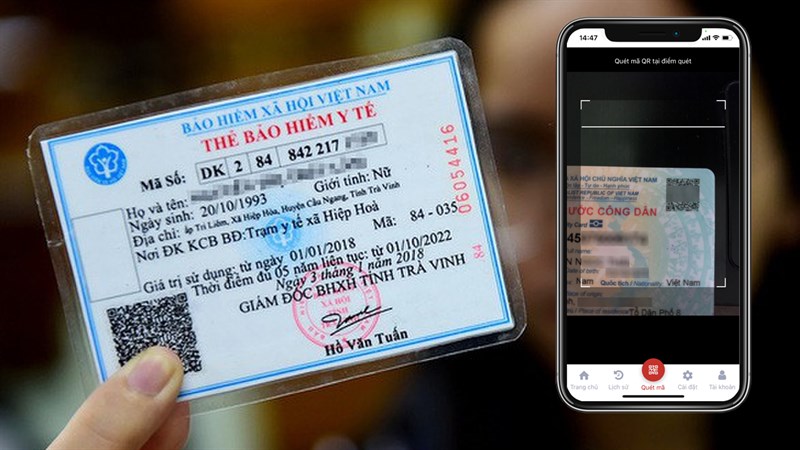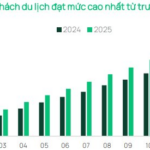Changes to Health Insurance Policy Effective July 1, 2024

Integration of Health Insurance Cards into ID Cards
Beginning July 1, 2024, health insurance (HI) cards will be integrated into national ID cards based on the request of the citizen, as stipulated in Article 22 of the ID Law.
The information integrated into the ID card will have the same validity as providing the information or using documents containing that information in administrative procedures, public services, transactions, and other activities.
Therefore, with the integration of HI card information into ID cards, citizens can use their ID cards to access healthcare and perform HI-related procedures.
Citizens can integrate HI card information into their ID cards at their request or when applying for, issuing, or reissuing their ID cards.
The HI card information integrated into the ID card will be accessed using specialized equipment.
Changes to Health Insurance Contributions for Households, Students, and University Students
As a result of the salary reform effective July 1, 2024, new guidelines will be issued for HI contributions and benefits for households, students, and university students.
According to Point e, Clause 1, Article 7 of Decree 146/2018/ND-CP, the monthly HI contribution rates for households are as follows:
– The first person contributes 4.5% of the base salary.
– The second, third, and fourth persons contribute 70%, 60%, and 50% of the first person’s contribution, respectively.
– From the fifth person onward, the contribution is 40% of the first person’s contribution.
The monthly HI contribution rate for students and university students is 4.5% of the base salary (30% subsidized by the state, with students and university students contributing 70%).
Changes to Health Insurance Card Contributions and Medical Expense Coverage
Currently, HI contributions are calculated based on the base salary; and when HI cardholders seek medical treatment with costs less than 15% of the base salary, they receive 100% coverage of medical expenses, as stipulated in Point d, Clause 1, Article 14 of Decree 146/2018/ND-CP.
The current base salary is VND 1.8 million/month. However, according to Resolution 104/2023/QH15, the National Assembly has officially approved the implementation of salary reform, abolishing the base salary-based wage system from July 1, 2024.
Thus, from that date, HI contributions and medical expense coverage may be affected by changes in the base salary. No official documents have yet been released specifying the exact HI card contribution rates from July 1, 2024.
Addition of New Beneficiaries for Health Insurance Support
Clause 2 of Article 32 of the Law on Forces Participating in Security and Order Protection at the Base Level, which takes effect on July 1, 2024, has added members of the force participating in security and order protection at the base level as beneficiaries of state-supported HI.
Article 23 of this law specifies that members of the force participating in security and order protection at the base level are entitled to financial support for HI and voluntary social insurance contributions at a level determined by the People’s Council of the province.
Article 24 of this law further states that when members of the force participating in security and order protection at the base level fall ill, have an accident, die, or are injured while performing their duties, they are entitled to benefits from the insurance fund as prescribed by the law.
If they have not joined HI, they will receive financial support for medical expenses.
To be considered for selection to join the force participating in security and order protection at the base level, Vietnamese citizens must meet the following criteria:
– Age: 18 to 70; for those over 70, if their health permits, the Chairman of the People’s Committee at the commune level will consider and decide based on the proposal of the public security force at the commune level.
– Clear background; good moral character; self and family consistently follow the Party’s policies, state policies, and laws.
– Not currently under criminal investigation, serving a criminal sentence in a commune, ward, or town, or subject to legal measures or administrative sanctions.
– Completed secondary education or higher. In border, mountainous, island, or economically disadvantaged areas, those who have completed primary education may be eligible.
– Registered permanent residency or temporary residence for one year or more at the place where the citizen applies to join the force participating in security and order protection at the base level.
– Those who have served in the public security force, military, or semi-professional commune public security force and have completed their duties, citizens who are knowledgeable about customs and practices, have prestige in the community, or have participated in the force participating in security and order protection at the base level, must reside permanently or temporarily at the place where they submit their application to join the force.
– Sufficient health based on a certificate from a medical facility.
(Source: Article 13 of the Law on Forces Participating in Security and Order Protection at the Base Level)












